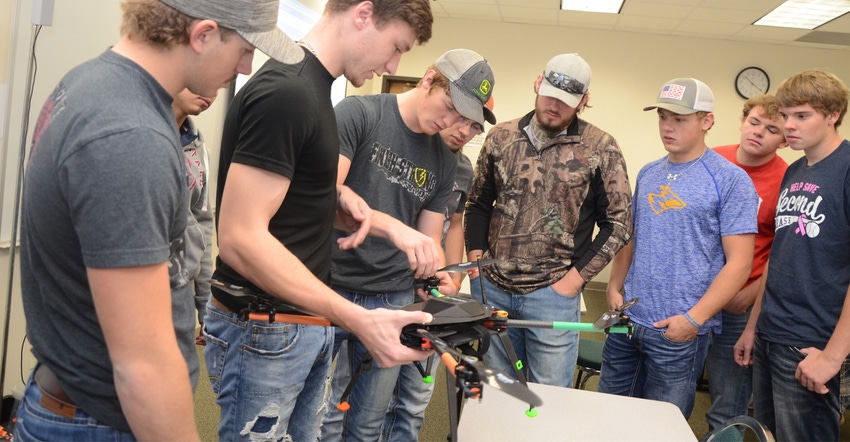December 23, 2016

The winter months, as most in the ag sector are well aware, are a time for planning out the next year's growing season — not only brushing up on the latest in technology and management practices, but also meeting with fellow farmers, ranchers, researchers, commodity organizations, and yes, ag journalists.
I've been fortunate to hear from some of the greatest minds not only in agriculture, but also in economics, entrepreneurship and technology in general. One of these was Steve Case, founder of AOL.com, who was a keynote speaker at the Farmer2Farmer conference hosted by the Farmers Business Network.
Sure, ag producers may not always think of themselves as entrepreneurs or startups. Farming and ranching is often considered a lifestyle, but it's also a business.
In agriculture, we tend to think about frontiers. We know we aren't going to find more arable land to farm, at least in the U.S., and that means we've got to produce more efficiently using the land and resources we've got — in many cases, using fewer resources. That's where entrepreneurship and innovation come into play, and the last few years have shown us there's plenty of room for both in agriculture.
Even the Silicon Valley, formerly the Santa Clara Valley, was originally an agricultural region, as Case pointed out. Up until the 1960s, the Santa Clara Valley was the largest fruit production and packing region in the world. "It's a relatively recent phenomenon," Case said. "It went from farming to [computer] chips."
The entrepreneurial spirit is alive and well in rural America. The challenge, Case said, is the lack of available venture capital in rural America. In 2015, 78% of venture capital went to three states: California, New York and Massachusetts. The remaining 22% went to the other 47 states. Meanwhile, 90% of venture capital went to men, while 10% went to women.
Thanks to the innovative spirit in the "flyover" states, certain regional hubs have risen to prominence in the tech sector. At the conference, Gov. Pete Ricketts, who comes from a well-known family of entrepreneurs, highlighted the fact that places like Omaha, Lincoln and other regional hubs in the Midwest have become known collectively as the Silicon Prairie — thanks to the business-friendly culture, low cost of doing business, and pool of young professionals with a strong work ethic within the region.
That's where millennials have a big part to play. We often hear the word "millennials" used in regards to millennial consumers. However, as David Kohl, professor emeritus at Virginia Tech pointed out at Nebraska Farm Bureau's annual meeting in December, millennials will make up about 70% of the workforce by 2025. And when given the chance, millennials show a lot of promise in the future of agriculture from a standpoint of entrepreneurship, innovation and technology adoption.
With the shifting demand in consumer choices comes a splintered marketplace, and as Kohl noted, that will create entrepreneurs in agriculture. "Who's going to drive it? It's going to be the millennials," he said.
This was also a key topic of discussion at Farmer2Farmer, where farmers, researchers, engineers, investors and techies of all ages gathered, including those in their 20s and 30s.
Millennials, just like the Gen X’ers and the baby boomers before them, get a bad rap, and often unfairly. But as Kohl pointed out, they'll be the ones feeding the world in the not-so-distant future, and farming and ranching operations that are successful will be ones that make a place for the next generation.
You May Also Like




